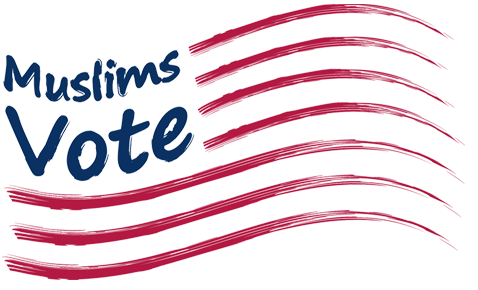The 2022 election cycle once again presents the American Muslim community with an important opportunity to increase its political capacity and presence. As voters, American Muslims have the potential to influence which party will lead the next U.S. Congress and determine the results of any other local and state elections.
Federal and many state laws make it illegal to turn away or discriminate against voters because of their race, color, national origin, disability, sex, or religion. This guide provides an overview of useful election day resources, including information regarding voting rights, requesting assistance in the voting booth, and requesting disability assistance.
These resources are meant to be accessible to everyone seeking assistance on election day.
Online Election Day Resources:
A Citizen’s Most Basic Voter Rights
- You cannot be denied the right to vote if you are eligible to do so.
- Generally, each state decides its own voter eligibility, rights and responsibilities. This information is often located on the website of your state board of elections.
- Federal law clearly states that no person shall be denied the right to vote on account of race or color.
General Voter Rights in Many States
- To have assistance casting your ballot in the polling place because of a physical disability or an inability to read the English language.
- To take children who are in your care into the voting booth with you provided they do not cause a disruption or interfere with normal voting procedures.
- To take any written or printed material into the polling place that will assist with marking or preparing the ballot.
- To have your employer make time for you to vote, if necessary. Though this employer-obligation is not law in all states, it is a right voters have in many jurisdictions. For instance, in Maryland for every election, every employer must permit any registered voter employee a period not to exceed two hours absence from work on Election Day if the employee does not have two hours of continuous off-duty during the time that the polls are open.
- To receive help from the election officials if you are unsure about anything relating to the voting process. Anyone who helps you may not try to influence your vote in any way.
If You Need Assistance in the Voting Booth
- You may bring in a friend, relative, or trusted person into the voting booth for your assistance. However, you may not receive assistance from your boss or labor union representative in the voting booth.
- Voters are granted the right to bring someone into the voting booth for assistance in Section 208 of the Voting Rights Act.
- For more information on voting assistance and what you need to do on Election Day, please visit the link here.
Disability Assistance
- All polling places are legally obligated to be fully accessible to senior citizens and citizens with disabilities under the Americans with Disabilities Act (ADA).
- Polling locations are obligated to provide voters with disabilities with at least one voting system with accommodations.
- Voters with disabilities and voters whose first language is not English are permitted to bring one person of their choice into the booth for assistance.
- For more information on Voting Rights and Disabilities, go here.
- For more resources on voting with a disability, visit the Autistic Self Advocacy Network.

